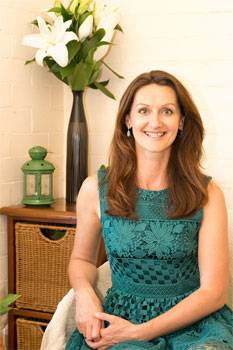Erika Morvay Beat The Bloat Interview

Why Do I Get So Bloated All The Time?
You've tried changing your diet but nothing seems to work. With the silly season nearly upon us we have Fusion Health holistic nutritionist and naturopath, Erika Morvay here to answer that question and tell us how to beat the bloat.
Interview with Erika Morvay, Fusion Health Holistic Nutritionist and Naturopath
Erika is a qualified Naturopath and Holistic Nutritionist. She has over a decade of experience working within the natural therapies industry and continues to educate herself to grow her expertise. She is part of the technical services team at Global Therapeutics (Fusion Health), providing expert advice to consumers, practitioners and retailers alike. She is also a founder of an online natural fertility coaching business, educating and supporting couples on their fertility journey. She is especially passionate about empowering and supporting women to live a nourished, fulfilled life. She can be contacted at www.erikamorvay.com
Question: Why do we get bloated?
Erika Morvay: Abdominal bloating is often caused by gases produced by the bacteria, which live in the large intestine. These bacteria always produce some gas, but excessive gas can be produced
When we consume certain foods
When our digestive tract is unable to absorb food
When the gut bacteria is out of balance
Question: What are some possible causes of bloated stomach?
Erika Morvay: The excess gas produced by the bacteria in the large intestine can be due to:
Digestive disorders
Food allergies and sensitivities
Fluid retention
Dehydration
Constipation
Infection
Bowel obstruction
Hormonal imbalances
Question: How do we know if bloating is a symptom related to foods we are eating or a more serious issue?
Erika Morvay: Food- related bloating can usually be reversed when you identify and remove the foods, which cause the problem.
If the symptoms of bloating persists, even after addressing the diet and lifestyle, it's always best to seek an advice from a healthcare practitioner.
Question: What foods commonly contribute to abdominal bloating?
Erika Morvay: This varies from person to person, but generally speaking here are some of the foods and drinks, which could contribute to bloating:
Processed and fast foods
Sugar and sugary foods
Concentrated fruit juices
Eating too many cruciferous vegetables
Legumes, which are not pre-soaked
White flour goods
Conventional dairy produce
Alcohol
Artificial sweeteners
Question: Why do we get more bloated during the silly season?
Erika Morvay: During the silly season we are more likely to overeat, eat foods, which contribute to bloating and drink more alcohol than usual. All this negatively impacts our digestion, puts an extra pressure on the liver and disrupts the gut bacteria.
Question: How can we beat bloating?
Erika Morvay: Try herbal medicine for a symptom relief:
Herbs such as Globe Artichoke and Chamomile are traditionally used in Western Herbal Medicine to support liver and gallbladder function. It may help to relieve symptoms of bloating, abdominal discomfort and belching.
In traditional Chinese medicine (TCM) herbs such as Chinese Licorice, Chinese Yam, Goldthread, Citrus Peel, Evodia, Black Atractylodes are often used for symptoms associated with abdominal bloating and discomfort.
You can also include ginger, turmeric, fresh peppermint herb or tea on regular basis to help prevent or reduce bloating.
Support your gut bacteria:
If you are experiencing digestive symptoms, such as bloating, your gut bacteria could be out of balance. Include fermented foods in your diet or choose a broad-spectrum probiotic with a higher number of strains, which can help support the diversity of your gut bacteria.
Eat foods that support normal digestive enzyme production and enhance the health of the gut bacteria, such as bitter salad leaves, apple cider vinegar, artichokes, asparagus, fermented foods, papaya, pineapple, lemons and limes, sprouted seeds and pre-soaked legumes, if you can tolerate them.
Always read the label. Use only as directed. If symptoms persist, consult your healthcare practitioner. Interview by Brooke Hunter
Have You Seen This?
MORE






